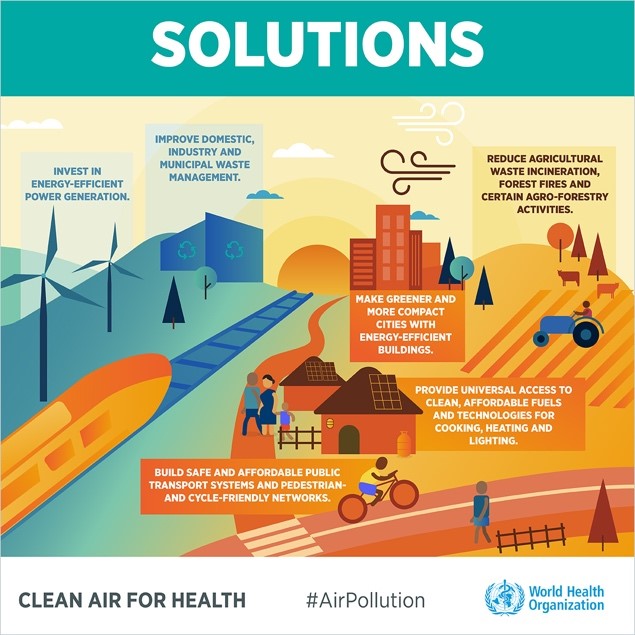
UN Climate Change News, 4 June 2019 – 5 June is World Environment Day, which this year has a focus on air pollution.
The UN estimates that between 6 and 7 million people die prematurely each year as a result of pollution, and that around 90 per cent of the world’s population breathe polluted air.
The UN’s Special Rapporteur on human rights and the environment this week called on countries to take urgent action to improve air quality in order to fulfil their human rights obligations.
Action to achieve the central goals of the Paris Climate Change Agreement – notably phasing our fossil fuels wherever possible and replacing them with renewable energy, in addition to fighting deforestation - is closely linked to reducing air pollution and to the UN’s Sustainable Development Goals.
In a video message to celebrate the Day, António Guterres pointed out that “Many air pollutants also cause global warming.” and said, “climate change is an existential threat”. He also called on governments to take urgent climate action by making four key shifts – taxing pollution, ending fossil fuel subsidies, a stop building new coal plants and a full shift towards the green economy.
The Economic Case to Reduce Air Pollution
The Global Assessment Report on Disaster Risk Reduction 2019, published earlier this month by the UN Office for Disaster Risk Reduction, further exposes how threats such as air pollution, diseases, drought and climate change combine and feed on each other to exacerbate their impact on human health and the environment.
For example, heat-waves mixed with drought conditions can trigger intense wildfires that cause high levels of air pollution from burning forests and hazardous chemicals, such as the dioxins from burning plastics.

credit : World Health Organization

credit : World Health Organization
In the 15 countries that have the highest greenhouse gas emissions, the health impacts of air pollution are estimated to cost more than 4 % of GDP. By contrast, actions to meet the Paris commitment of keeping warming to below 2 degrees Celsius, would cost around 1 % of global GDP, says the World Health Organization WHO.
For example, it is estimated that creating more sustainable, healthy cities would reduce the capital required for urban infrastructure over the next 15 years by US$ 15 trillion. Furthermore, the low-carbon investment necessary to meet the targets of the Paris Agreement is estimated to be US$ 270 billion a year for the next 15 years, while continuing along a high-carbon pathway would cost an estimated US$ 90 trillion per year in infrastructure investment and maintenance.
For more on solutions to reduce air pollution check the report published by the UN Environment and the Climate and Clean Air coalition.
Join UNEP’s “Mask Challenge” to Beat Air Pollution
In connection with World Environment Day 2019, UN Environment has launched a global campaign to “Beat Air Pollution” and is calling on people all over the world to participate in the “Mask Challenge” via social media. The idea is for people to take a photo or video of themselves wearing a mask to share on social media.
The UN Climate Change staff are also taking part in the Mask Challenge:








